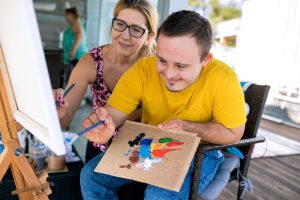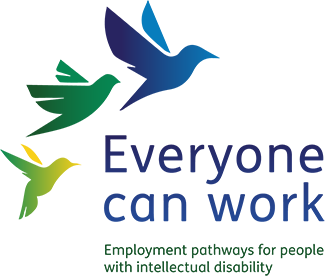Learning what you are interested in (Easy Read)

|
|
Finding out what you are interested in is important. It makes a big difference to:
|
|
|
Many children and adults with intellectual disability do not get the chance to work out what they are interested in. |
|
|
They may not:
|
|
|
Their parents and supporters might think new experiences are too hard to do or understand. You can end up only doing what other people think you can do or want to do. |
|
|
People called researchers have looked into this. They found that family support and work experience help you know your interests and try out jobs. |
|
|
This gives you the best chance of finding and keeping a job you like. |
|
|
Things that help Families can help their child try different interests. Work experience, volunteering and casual work are great ways to find out the work you like. |
|
|
Remember It is always a good time to work out your interests. It makes a big difference to your life. |
Using a Discovery process to find out what you are interested in
|
|
The Discovery process is finding out:
|
|
|
You can use NDIS funds to employ staff to help you with the Discovery process. |
|
|
Some Disability Employment Services and disability organisations can also help you with the Discovery process. |
|
It takes time to:
|
|
|
|
|
|
Discovery includes: |
|
|
|
|
|
|
|
|
|
|
|
|
|
|
This helps you learn about different kinds of jobs. |
|
|
When you have finished this Discovery process, then you can get support with finding and keeping a job. |
|
|
These interviews are a relaxed way for you and employers to learn about each other. |




















